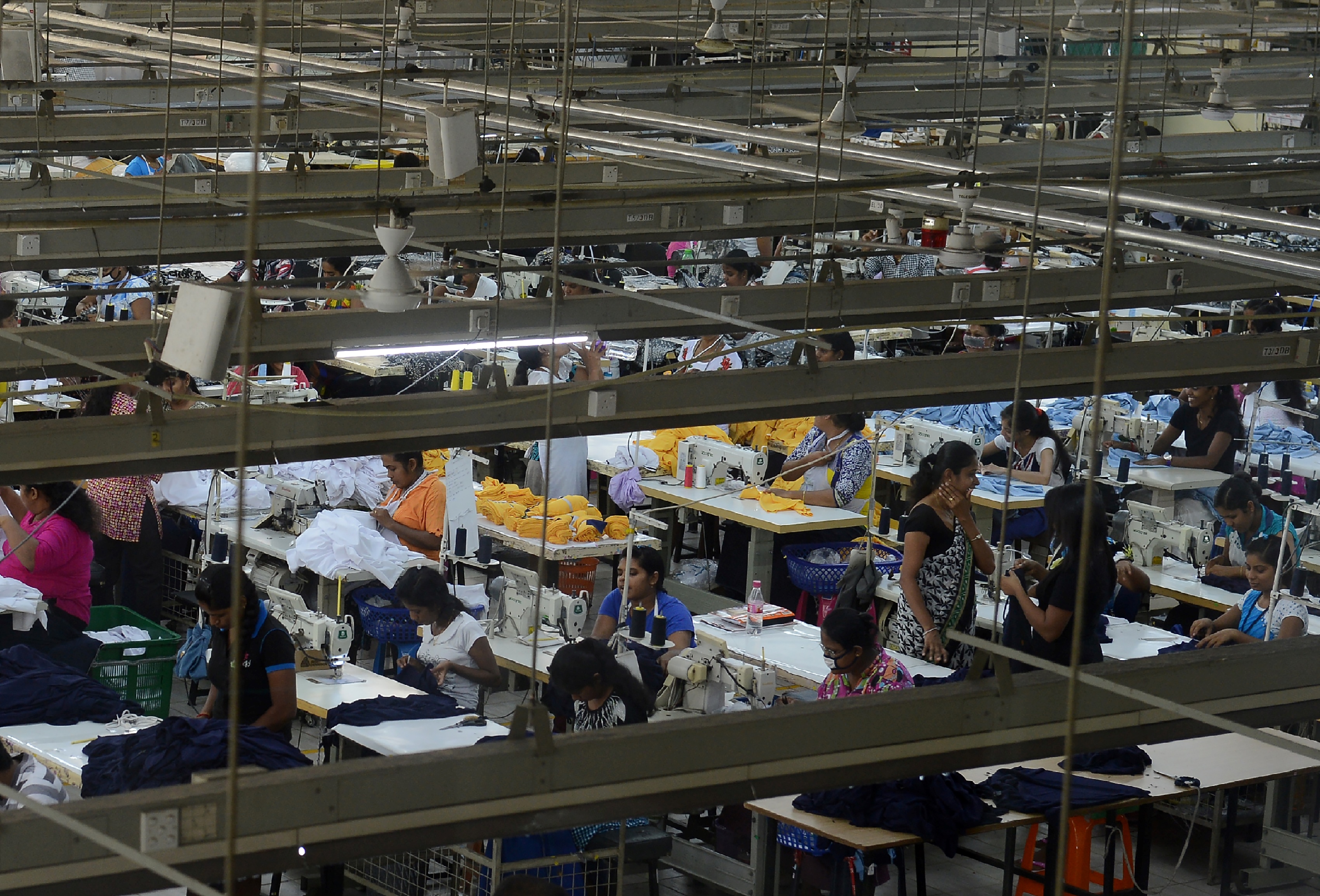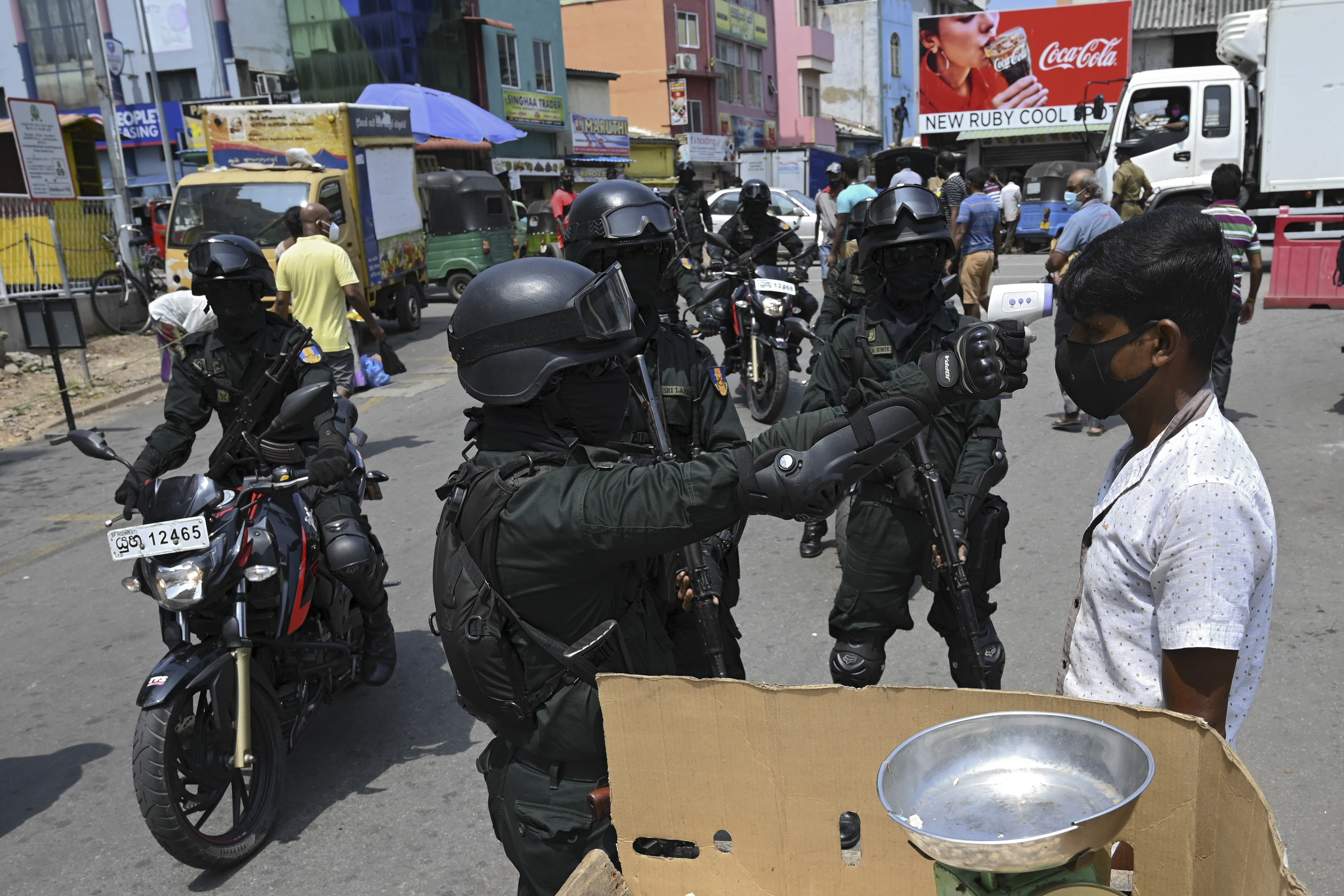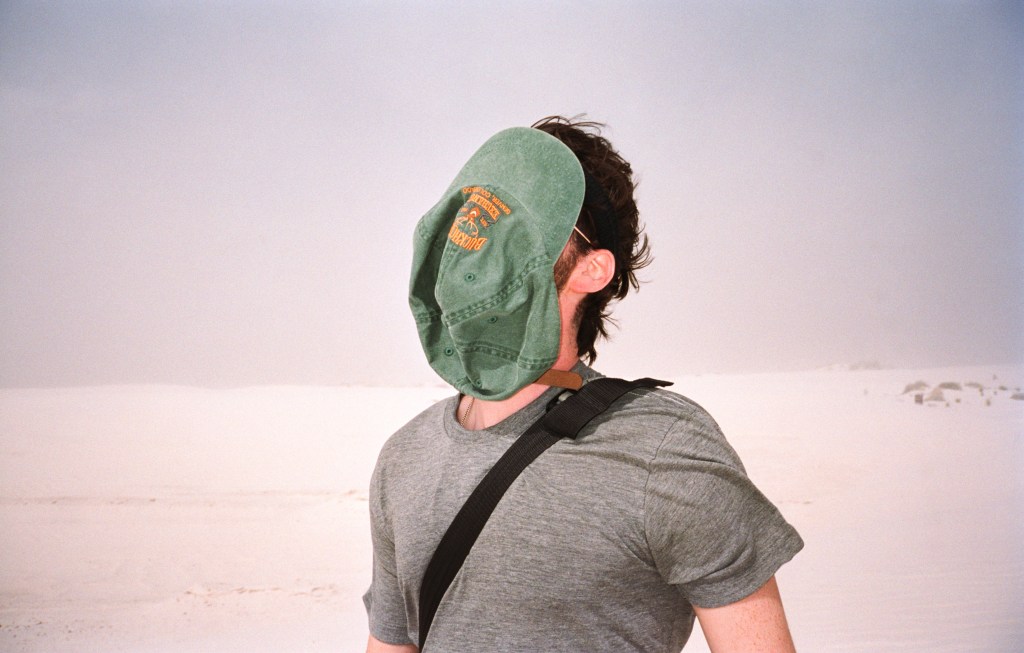GAMPAHA, Sri Lanka—When 39-year-old P Ratnayake, a supervisor at the Minuwangoda facility of Brandix Sri Lanka (Pvt.) Ltd tested positive for Covid-19 in October, two months had elapsed since coronavirus cases had been reported from the community.
With this case, the Covid-19 crisis in Sri Lanka, which the government continuously boasted to have controlled, had reached a critical stage. Ratnayake’s would be the first case to be detected in a cluster—but not the origin of the cluster, according to health officials. By Nov. 8, it had become a cluster with over 10,000 patients.
Videos by VICE
When Ratnayake tested positive, she was maligned and vilified by the public. Many, including her employees, she claimed, had accused her of causing the outbreak.
“I was treated as if I had a social disease. I felt like I had tested positive for HIV/AIDs and not Covid-19,” she told VICE World News. Despite ongoing investigations to trace down the origin of the outbreak, Ratnayake became the de facto “Patient Zero” of the outbreak.
When Ratnayake spoke to VICE World News, she had been at the National Infectious Diseases Hospital—the country’s primary care centre for patients who test positive for Covid-19—for over ten days.
A mother of four, she has over nine years of experience as a supervisor at Brandix, the apparel manufacturer at the centre of the ‘Minuwangoda cluster’ controversy in Sri Lanka. Since October, more than 1,000 of the factory’s 1,400 employees have tested positive for Covid-19.
After the cluster emerged, the Gampaha district, where the factory is located, has been under curfew, much like many other parts of the island.
On Sep. 28, Ratnayake said she fell ill at the factory. Several other employees also felt ill, she said. “Some of them, including myself, were taken to the ‘sick room’ because they couldn’t work. Two of them fainted and I helped carry them. The sick room gave some painkillers and other medicines, saying it was gastritis.”
Two days later, when Ratnayake’s condition worsened, she was hospitalised with severe chest pain.
“My chest was hurting so much I was having trouble breathing. My mom died from a heart attack. So when my chest started hurting, the first thing I remembered was my mother. I was sure I was getting a heart attack like her,” she said.
But the tests reported nothing conclusive. The doctors felt she may have pneumonia, however, and as part of the process, had tested her for Covid-19.
“When they discharged me, they told me the test was negative,” Ratnayake said.

Two days later, on Oct. 3, Ratnayake and her husband received a number of phone calls: The hospital, public health inspectors, and even the State Intelligence Services called to tell her that as per PCR test, she was Covid-19 positive.
“That was when all of this started,” she said, detailing the ordeal she was plunged into thereafter.
“Police officers came to my home and treated me like a criminal,” she said. “They accused me of sleeping around and said that was how I got infected. There were people flocking around my home the whole day that day.”
She believes that the two police officers who came to her home that day were intoxicated. “They were disrespectful and scolded my husband and my children. They accused us as if we were hiding from them.”
The harassment continued. She had received calls from several individuals from the factory management, insinuating her of spreading the virus at the factory.
“I have never had anything bad to say about the factory,” she said. “The factory is like a second home to me. But when I tested positive for the virus, they asked whether I had an affair with a foreigner and if that was how I had contracted the virus.”
A day after Ratnayake’s hospitalisation, her 16-year-old daughter—youngest among her kids—also tested positive for coronavirus.

It was a big jolt for Ratnayake, branded “patient zero”.
“When my daughter tested positive for the virus, she was very scared. She had cried when they [health officials] had come to take her to the hospital.”
Despite the situation she was in, her harassers did not stop.
When Ratnayake received calls asking if she had an affair with a foreigner, she would laugh at them and hung up. “They kept on calling and told me to tell them whether I had an affair. They promised they wouldn’t give out that information if I confided in them.”
Ratnayake categorically denied the accusations on her. Gayan Ratnayake, her husband of 21 years, also defended her.
“I was not angry at first, but sad. I was sad when these rumours started spreading against this good person,” he said. According to Gayan, the rumours were part of a conspiracy to cover-up the outbreak. “Whoever made up these rumours, made them to save their own skins. I don’t believe that they thought there would be so many patients. They accused her and washed their hands.”
Days after Ratnayake’s harassment reached media attention, further allegations of company negligence and harassment of its employees who tested positive for the coronavirus would make headlines.
Despite the apparel sector contributing to over 40 percent of the country’s total exports, its workers have routinely battled for better wages, protection against occupational hazards and better living and working conditions.
“Factories have reduced these workers to machines,” Ashila Dandeniya, a labour rights worker told VICE World News. “ Some, who later tested positive for Covid-19, had fainted while working, but they were not given proper care. Sick women were made to work because they had orders to fulfill.”
The workers have also complained that they were herded off, manhandled by military officials into quarantine centres in the middle of the night. Many of whom were forced to stop communicating what was happening to outsiders.
At present, Sri Lanka’s Covid-19 cases have passed the 100,000 mark. Covid-19 deaths stand at 61.
The country continues to be under a sporadic lockdown curfew; areas which report a high number of cases are isolated and travel is restricted. The rest of the country continues to function as usual, under strict health regulations imposed by the military and the government. Many of the apparel factories that shut down after the outbreak, are planning to return to work.
For Ratnayake and her family, some normalcy has returned after their tumultuous experience. Both she and her daughter were discharged from the hospital on Oct. 18 after 15 days of treatment. Ratnayake said she is ready to return to work. Although a date has not been announced, she and her fellow factory employees have been requested to return to work soon.
“I feel so much better than I did before,” she said. “My family and I cannot bear to not work during this time. We live on rent and we need the money to survive. So whatever that was said and done, I will return to work when the factory reopens,” she said.
Follow Kris Thomas on Twitter.
More
From VICE
-

Chris Farley in 'Tommy Boy' (Photo by CBS via Getty Images) -

Dan Akyroyd and Bill Murray (Photo by Vinnie Zuffante/Getty Images) -



